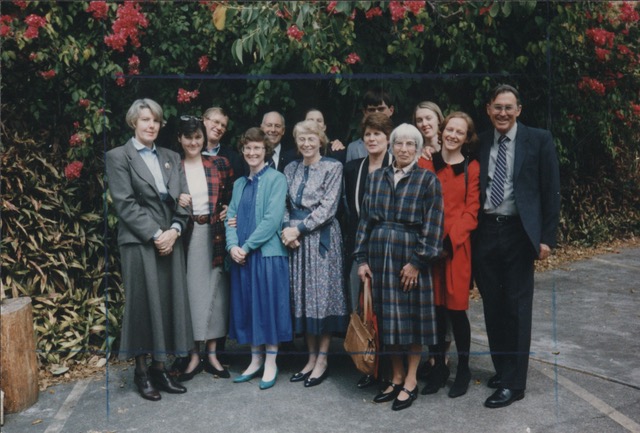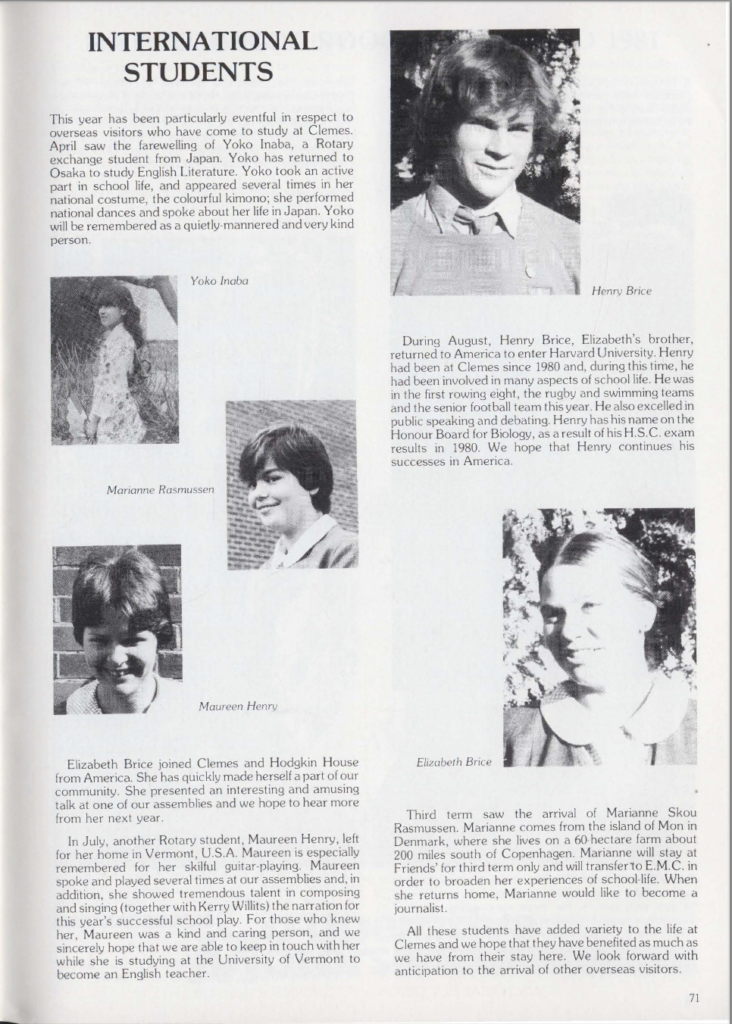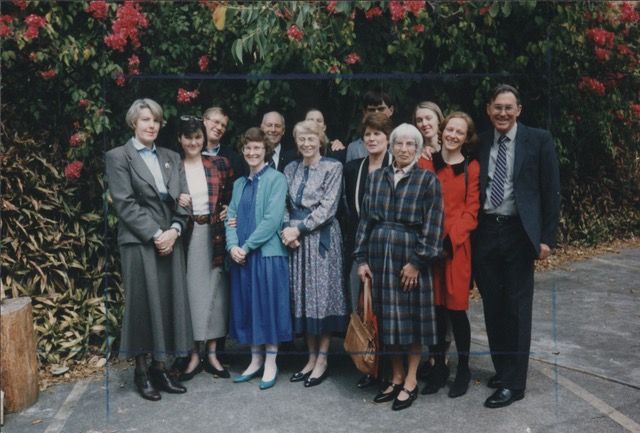Henry Brice (Class of 1981) from New York and back to Friends’
Posted on November 18, 2024
At 17, Henry Brice (1981) came to Friends’ from New York to prepare for Harvard. The experience was “the best of my life,” says Henry, whose family’s connections to the school date to its founding days.

Why did you leave the United States to go to school in Tasmania?
We were living in rural New York because my parents thought: let’s live in this farming area where we can have a huge house and animals and it’ll be a wonderful experience. But they gave no thought to the school. [Henry has two sisters.] Academics were not valued; football was. And we never complained! My father was a professor at Cornell University and my mother went to Stanford; if we’d told her school was terrible she’d have done something, but she thought we were having this wonderful childhood with horses and sheep and dogs. I was accepted to Harvard, early admission, but I thought: if I go to Harvard now, without being prepared for a rigorous academic community, I’m not going to do well. I’d gotten by basically on raw talent and wanted the kind of academic rigour Friends’ would offer. I decided to defer for a year.
Why The Friends’ School?
Friends’ was important to my family. My father [Neil Brice, 1951] went to Friends’ and so did all his brothers [Mark, 1950, David, 1955 and Andrew Brice, 1961, who was instrumental in forming the Mather Foundation]. One of my relatives, Frances Mather, was an early benefactor. My grandmother [Edith Brice, 1923] was matron of the boarding school at Friends’, and my grandmother’s double first cousin [Robert Andrew Mather] was the chairman of the board of governors. My plan was to stay a year and, given the school years are different in the US, I ended up staying almost two. Henry’s grandmother, Edith Brice, lost her mother as a toddler and was raised with her cousins, the Mathers.

What do you remember most of your time there?
I was an outsider, being American, but at the same time I was the ultimate insider, with a family history that went back to the founding of the school. There were something like 50 students in each year and in the three classes I interacted with during my years at Friends’, four of my classmates were cousins: Julian Mather (1980), Carey Mather (1982), David Walker (1981) and Simon Walker (1982).
What was that like for you?
I look at it as amongst the best years of my life. I was very much on the outer at the school in New York because I wasn’t athletic. But when you have 20 boys it doesn’t matter. So long as you’re willing, you’re on the team! I rode for the first eight. I represented Tasmania in rugby. I was terrible at Aussie Rules but I played it. I swam. I did cross country and shot put. When there are so few students, everybody has to do everything. Simon says he was always sad because we always lost, but Friends’ gave me the opportunity to be an athlete as well as an academic. This was amazing for me.
Was your time at Friends’ formative in other ways?
My father was an Australian, and he died when I was 10 years old. He was an amazing dad, spending every minute with us kids from the moment he got home until we went to bed. Part of my reason to go to Friends’ was to have a common experience with my dad. I also wanted to connect with the Australian part of my life I hadn’t connected with. I stayed at Friends’ right up to a week and a half before Harvard started. [There Henry studied engineering/computer science, then chemistry and physics.]

What’s been your path since then?
I went into the automotive industry because it felt like my way to impact people’s lives – you can have a significant impact on the design of a vehicle. I worked at Ford in Michigan and for six years at Mazda in Japan. I worked for Tesla and the EV [electric vehicle] startup Coda. The last ten years I’ve been working on EVs, hybrid cars and internal combustion in China; I take three Chinese lessons a week. I live in a suburb of Boston with my wife and two of my three sons.
What was it like returning to The Friends’ School last year?
So much came back to me. The boarding house dining hall is the same; so are the racquetball courts. It was cool to see the honour boards with family members’ names on them.
After 40 years, I’m still friends with my cousins. I talked to David this week, Julian’s going to call next week and I talked to Simon today. This birthday I did something I highly recommend. As a present to myself, I contacted all my best friends from high school and college and anyone I was close to but had lost touch with. These are people that you have a deep connection with, and it’s wonderful renewing that connection. Simon was always just David’s pesky younger brother but he and I’ve become much closer since I visited Hobart last year. A two-year difference is huge when you’re 18. At 61, it’s kind of nothing.


